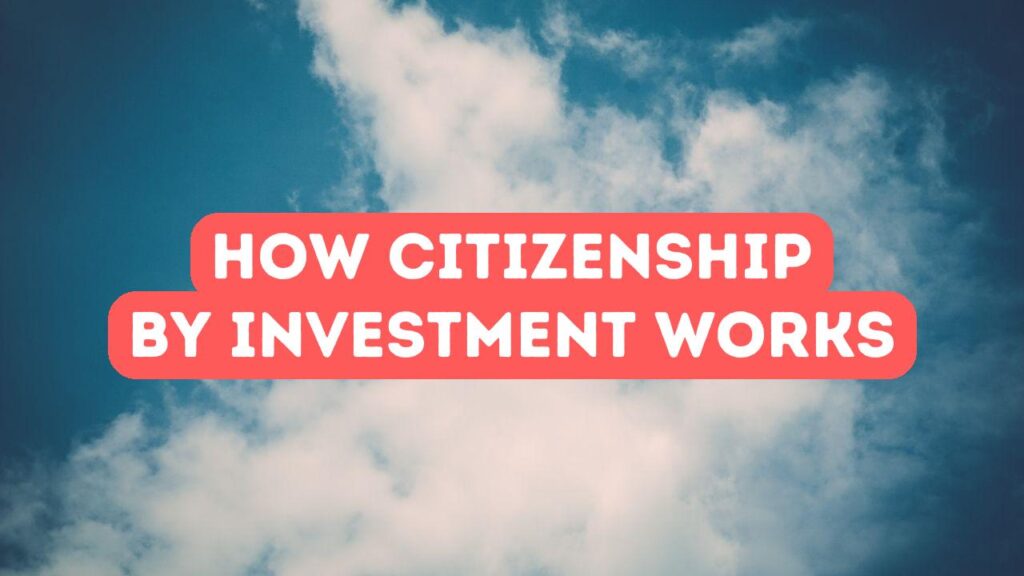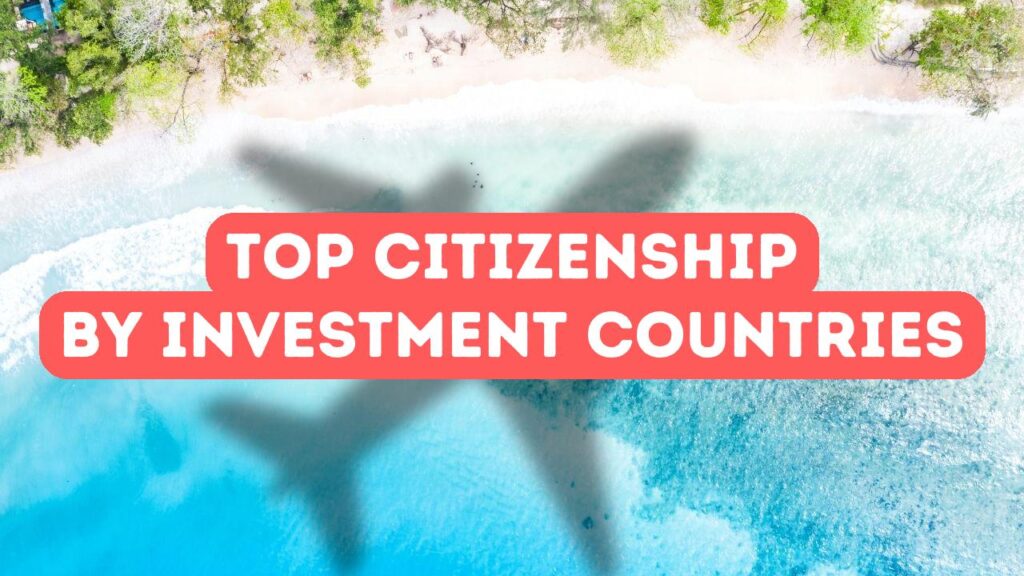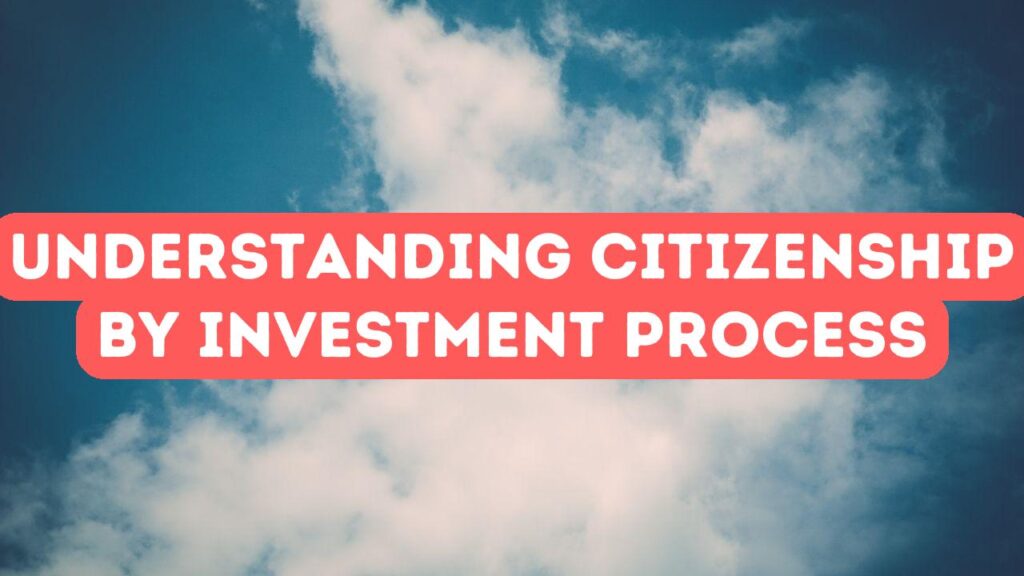In an increasingly interconnected world, citizenship by investment (CBI) programs have emerged as a compelling option for high-net-worth individuals seeking the flexibility of global mobility, financial diversification, and enhanced personal security. Offering the ability to obtain a second passport through substantial financial contributions to a host country, these programs present a unique blend of opportunities and challenges. As with any significant investment decision, it is crucial to weigh the advantages—such as visa-free travel, potential tax benefits, and improved quality of life—against potential drawbacks, including high costs, rigorous application processes, and varying degrees of international acceptance. This blog post aims to provide a comprehensive examination of both the pros and cons associated with citizenship by investment, equipping potential clients with the essential insights needed to make well-informed decisions.
The Benefits and Risks of Citizenship by Investment
One of the foremost benefits of citizenship by investment is the unparalleled access to global mobility it provides. Acquiring a second passport often allows for visa-free or visa-on-arrival travel to a vast number of countries, significantly simplifying both business and leisure travel. This ease of movement can be particularly advantageous for those with extensive international commitments, enabling them to sidestep the time-consuming and often cumbersome visa application processes. Moreover, holding citizenship in a stable, peaceful country can offer a strategic safe haven in times of political or economic instability in one’s home nation, thereby enhancing personal security and peace of mind.
In addition to enhanced global mobility, citizenship by investment can offer significant financial and quality-of-life benefits. Many host countries provide favorable tax regimes, allowing individuals to optimize their tax liabilities by benefiting from lower income taxes, capital gains taxes, or even tax exemptions. This opportunity for financial diversification can be particularly appealing for high-net-worth individuals aiming to protect and grow their wealth in a stable environment. Furthermore, gaining citizenship in an economically robust country often affords access to superior healthcare, education, and infrastructure, thereby improving one’s overall lifestyle and future prospects. For families, this means not only a secure and prosperous present but also a promising future for upcoming generations, enriched with myriad opportunities.
However, it is important to recognize the potential risks and challenges associated with citizenship by investment. One of the primary concerns is the substantial financial outlay required, which can be prohibitively expensive for some individuals and may not guarantee immediate returns. Furthermore, the application process can be rigorous and time-consuming, often involving extensive background checks, detailed documentation, and lengthy waiting periods. Additionally, the level of international acceptance of a second passport obtained through investment can vary, with some countries casting a wary eye on such rapid changes in citizenship. This skepticism can affect the long-term benefits, potentially leading to complications in diplomatic relations or limitations in travel freedom. Therefore, thorough due diligence and a clear understanding of all these aspects are crucial for making an informed investment decision.
Weighing the Cost: Is Citizenship by Investment Worth It?
When evaluating the cost of citizenship by investment, it’s essential to consider both the financial outlay and the long-term value it brings. These programs typically require significant investments, often starting from several hundred thousand dollars and sometimes exceeding a million, depending on the country and the specific benefits sought. The financial commitment may include donations to national development funds, real estate purchases, or investments in local businesses. However, the potential return on this investment can be substantial, offering not just a second passport but also enhanced global mobility, potential tax advantages, and a more secure future for one’s family. Ultimately, the true worth of this investment is highly individualized, depending on one’s personal and financial goals, as well as the geopolitical stability and economic prospects of the chosen host nation.
Another significant factor in assessing the worth of citizenship by investment is the rigorousness and transparency of the application process. Countries with well-established CBI programs often perform thorough due diligence, aimed at ensuring the integrity of applicants. This scrutiny typically involves extensive background checks, requiring detailed documentation and proving the legal source of funds. The complexity and timeframe of these procedures can add layers of stress and potential delays, making a thorough understanding of each program’s unique requirements essential. Despite these hurdles, a meticulously organized and prepared application can greatly enhance the likelihood of approval. It is also worth noting that certain countries offer streamlined application processes and faster approval times, balancing the scales for those needing swift access to their desired benefits. Therefore, assessing the non-financial costs such as time, effort, and the complexity of the process is paramount in determining whether citizenship by investment aligns with one’s immediate and long-term objectives.
Finally, the long-term implications of obtaining citizenship by investment must be carefully contemplated. While the immediate benefits such as enhanced travel freedom and potential tax advantages are enticing, the commitment one makes extends far beyond the initial financial and procedural investments. For instance, citizens must remain compliant with the host country’s legal and tax systems, which could necessitate ongoing administrative and financial obligations. Furthermore, geopolitical shifts and changes in government policies could impact the stability of the CBI program and the value of the second citizenship over time. Additionally, multiple citizenships may lead to complex tax situations and responsibilities in more than one jurisdiction. Given these multifaceted considerations, prospective applicants should seek professional advice and conduct thorough research to ensure that the long-term rewards justify the initial and ongoing costs, aligning with their personal and financial objectives.
Navigating the Legal Landscape of Citizenship by Investment
Navigating the legal landscape of citizenship by investment requires a thorough understanding of the specific laws and regulations governing each program. These can vary significantly from one country to another, encompassing diverse requirements for financial contributions, residency periods, and due diligence processes. It’s imperative for potential investors to consult with legal experts who specialize in CBI programs to ensure compliance and avoid any legal pitfalls. Proper legal guidance not only aids in the smooth processing of applications but also ensures that all investments made align with the host country’s legislative framework, consequently safeguarding the investor’s interests and future mobility.
Moreover, the legal intricacies of these programs often extend to tax implications and international laws that could affect the investor’s overall financial strategy. Some countries offer tax incentives as part of their CBI programs, including reduced tax rates and exemptions on global income, which can be highly advantageous for high-net-worth individuals. However, it’s vital to consider the tax regulations not only of the host country but also of the investor’s home country to avoid unintended tax liabilities. Double taxation agreements and other international treaties play a crucial role in determining the final tax burden, making it essential for applicants to seek advice from tax professionals who deeply understand both jurisdictions. This dual consultation helps in optimizing the fiscal benefits while minimizing potential financial risks associated with citizenship by investment.
Finally, the political and social climate of the host country is another critical aspect that warrants attention during the application process. Political stability and transparency are pivotal for ensuring that the terms of a CBI program remain consistent and beneficial, minimizing the risk of abrupt policy changes that could impact the status of obtained citizenship. Furthermore, understanding the social dynamics, including the perception of foreign investors and the overall integration environment, can offer valuable insights into the long-term viability and desirability of the new citizenship. Thus, conducting a comprehensive assessment of both legal and socio-political factors will provide a holistic view, enabling prospective citizens by investment to make prudent and well-informed decisions.







